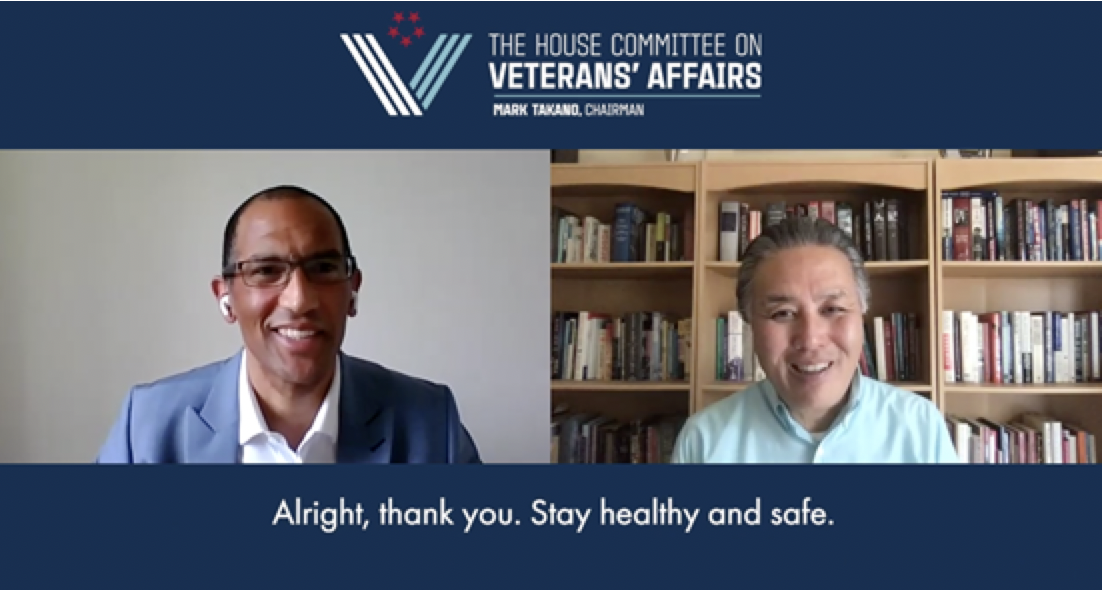Chairman Takano Speaks with CEO of Iraq and Afghanistan Veterans of America to Discuss Veterans’ Mental Health During the COVID-19 Pandemic
Press Contact
Jenni Geurink (202-819-4684)
Miguel R. Salazar
RIVERSIDE, CA-- This week, House Committee on Veterans’ Affairs Chairman Mark Takano (D-Calif.) spoke with Jeremy Butler, CEO of Iraq and Afghanistan Veterans of America (IAVA), about VA’s response to the COVID-19 pandemic as well as veterans’ mental health, toxic exposure, and VA’s push to add its exclusionary and outdated motto to all VA cemeteries. See the full conversation with Jeremy Butler here.

View their full conversation here
“As you know, veteran suicide prevention is my number one priority this Congress-- I know physical distancing due to the pandemic can lead to feelings of stress and isolation and now we’ve got civil unrest layered on top that created other sorts of anxiety,” said Chairman Takano. “Especially for veterans who are already experiencing PTSD, there are a number of things we need to clearly understand starting with why a veteran would be triggered or set off by what is happening right now. As this crisis continues, it is important to understand the signs of a veteran in distress in order to get them the help they need and prevent a tragedy. I want to give you all a big shout out and thank IAVA and all of your members for the work that you do--we are grateful to have you here with us.”
“Thank you Chairman Takano-- you have been a great ally of all veterans and certainly of IAVA,” said IAVA CEO Jeremy Butler. “Mental health is an issue that was important to us before the pandemic, but it got worse, and I think it’s even worse now that we’ve got this national unrest. We launched a program called the Quick Reaction Force, which is free to any veteran and is a space where veterans can connect with a peer counselor who they can talk to about anything. I think the increase of mental health needs is because facilities are closing down-- spaces where you could talk to fellow veterans, counselors, or even just someone who understood what you are going through are closed. Now, it is hard to make the adjustment to figure out where you turn to. I appreciate your effort and all your staff’s effort to make sure we are taking care of our veterans.”
If you or a veteran you know are struggling, contact the Veteran Crisis Line 24/7 at 1-800-273-8255 and select option 1, or text 838255. For more information about the Committee’s efforts to address the COVID-19 crisis and resources available for veterans, please visit: https://democrats-veterans.house.gov/covid-19.
###
Next Article Previous Article
